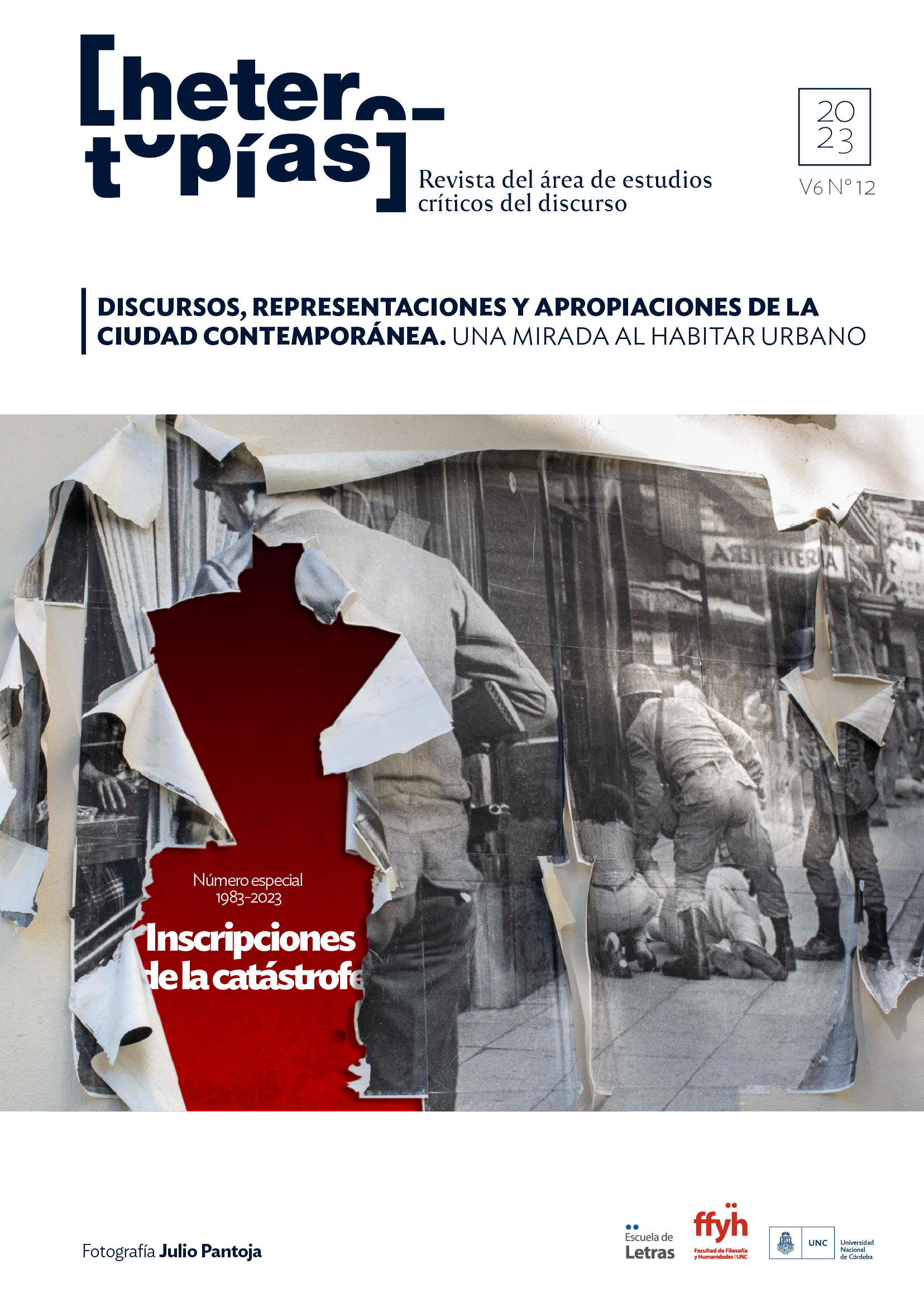Homage to Noé Jitrik: Reflections on the Interview
Main Article Content
Abstract
The article proposes a reflection on an interview with Noé Jitrik, conducted in June 2019 ("Noé Jitrik, una semiótica del detalle"). The production of the interview in video format was in charge of the semiotic research team of the Universidad Nacional de Tres de Febrero (Project "Semiotics of Performativity: epistemological lens, event and performative effect", UNTREF 2018-2020), formed by Martín Acebal, Cristina Voto, Claudio Guerri, Guadalupe Álvarez, Micaela Paz and Maximiliano Cortés. Camila Kervorkian and the UNTREF Media team participated in the final editing. The audiovisual record of the interview (which can be consulted together with this article) was screened within the framework of the XI Argentine Congress of Semiotics, which took place in Buenos Aires in August 2023. In that context, Dr. Elvira Narvaja de Arnoux paid the following tribute to Noé Jitrik.
Downloads
Article Details

This work is licensed under a Creative Commons Attribution-NonCommercial-ShareAlike 4.0 International License.
Those authors who have publications with this journal, accept the following terms: Those authors who have publications with this journal, accept the following terms:
a. The authors will keep their copyright and guarantee to the journal the right of first publication of their work, which will be simultaneously subject to the Creative Commons Attribution - Non-Commercial - Share Alike (by-nc-sa) Attribution License; no commercial use of the original work or any derivative works is allowed, the distribution of which must be done with a license equal to the one that regulates the original work.
b. Authors may adopt other non-exclusive license agreements for the distribution of the published version of the work (e.g., deposit it in an institutional telematic archive or publish it in a monographic volume) provided that the initial publication in this journal is indicated.
c. Authors are allowed and recommended to disseminate their work through the Internet (e.g. in institutional telematic archives or on their website) before and during the submission process, which may lead to interesting exchanges and increase the number of citations of the published work. (See The effect of open access).
How to Cite
References
Culioli, A. (1999), Pour une linguistique de l’enonciation, T. 2. París: OPHRYS.
Ginzburg, C. (1999). Indicios. Raíces de un paradigma de inferencias indiciales. En Mitos, emblemas, indicios. Barcelona: Gedisa.
Jitrik, N. (2020a [2018]). Discurso pronunciado en la recepción del V Premio Internacional de Ensayo Pedro Henríquez Ureña. Alicante: Biblioteca virtual Miguel de Cervantes. Recuperado de: https://www.cervantesvirtual.com/nd/ark:/59851/bmc1048220
Jitrik, N. (2020b [2012]). Cuatro caprichos teórico-prácticos, discurso pronunciado con motivo del Reconocimiento concedido por la Universidad del Valle, Cali (Colombia). Alicante: Biblioteca virtual Miguel de Cervantes. Recuperado de: https://www.cervantesvirtual.com/nd/ark:/59851/bmc1048205
Narvaja de Arnoux, E. (2023). Noé Jitrik: recorrido por algunas de sus reflexiones en torno del leer y el escribir. CELEHIS : Revista del Centro de Letras Hispanoamericanas, 0(45), 198-213. Recuperado de: https://fh.mdp.edu.ar/revistas/index.php/celehis/article/view/7256
Narvaja de Arnoux, E. (2022). El Análisis del Discurso en Latinoamérica: objetos, perspectivas y debates. Revista Signos. Estudios De Lingüística, 54(107). Recuperado de: ttps://revistasignos.cl/index.php/signos/article/view/822
Narvaja de Arnoux, E. (2012) “Discursos epidícticos y homenajes en los últimos años de Sarmiento”, en Adriana Amante, compiladora del tomo sobre Sarmiento de la Colección Historia Crítica de la Literatura Argentina (Noé Jitrik, dir.) (pp. 579 601). Buenos Aires: Emecé.
Pêcheux, M. (1984), “Sur les contextes épistemologiques de l’AD”. Mots, 9.
Spitzer, L. (1968 [1948]), Lingüística e historia literária. Madrid: Gredos.
Voloshinov, V. (1976 [1929]). “Cada palabra siente el contexto y los contextos en los cuales ha vivido su vida social intensa”. En El marxismo y la filosofía del lenguaje. Buenos Aires: Nueva Visión.
